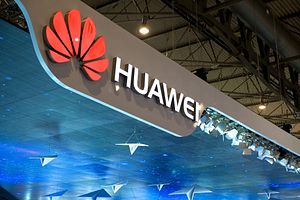Trans-Pacific View author Mercy Kuo regularly engages subject-matter experts, policy practitioners, and strategic thinkers across the globe for their diverse insights into U.S. Asia policy. This conversation with Meia Nouwens – Research Fellow for Chinese Defense Policy and Military Modernization at International Institute for Strategic Studies (IISS) in London and former policy officer at the European Economic Trade Office in Taiwan – is the 223rd in “The Trans-Pacific View Insight Series.”
Explain London’s rationale for allowing Huawei to operate in the U.K. with limited market share.
The U.K.’s decision to allow high-risk vendors including Huawei to operate with a limited 35 percent market share is based on several factors. Firstly, that Huawei components are already present in previous-G networks across the country, with which 5G networks will be entangled. Secondly, the U.K. has concluded there can be a distinction between different parts of the core and periphery. High-risk vendors will therefore be kept out of the core of a network and only allowed to participate in the non-sensitive parts of the network such as the part of the network that connects devices and equipment to mobile phone masts. Furthermore, the decision states that maintaining diversity within supply chains is important, and that the 35 percent cap on high-risk vendors will be periodically reviewed and could potentially be lowered if other new disruptive and trusted vendors become available. Following consultation with the U.K.’s National Cyber Security Center, GCHQ and others, the U.K. government believes that by doing so, the U.K. has found a practical and secure solution to the potential use of Huawei in 5G networks that may mitigate future risks.
What are the implications of the U.K.’s decision on Five Eyes intelligence-sharing?
The U.S. has previously warned that any decision to permit Huawei to participate in the U.K.’s roll-out would have serious consequences for intelligence sharing between the two countries within the Five Eyes intelligence-sharing network. How this goes forward remains to be seen. British intelligence officials have stated that U.K.-U.S. intelligence sharing has never been conducted via channels that involved Huawei equipment and instead are conducted via specially encrypted communication channels. U.S. Secretary of State Mike Pompeo has stated that the U.K. has a chance to “relook” its decision to allow Huawei into its 5G network and restated that sensitive U.S. intelligence should only travel through “trusted networks.” However, there has been no clear statement from the U.S. on the implication of the U.K.’s decision yet.
How might Huawei’s U.K. presence impact U.S.-U.K. relations?
The U.K. and U.S. most likely still agree on the current broader challenges to the rules based international system but may disagree on how to approach addressing those challenges. U.S.-U.K. relations have, since Trump’s presidency, diverged on a number of issues, such as climate change. However, despite this the U.K. and U.S. remain deeply connected when it comes to other issues of national security and defense. This closeness in the relationship will likely remain. As Secretary of State Pompeo has not made any clear statements on the consequences of the U.K.’s decision on 5G vendors, consequences for intelligence sharing are yet to be seen.
How might the U.K.’s approach factor into the decision-making process of key European countries, such as Germany, France, and Italy?
European countries have by and large held off on making any firm decisions on whether or not to allow Huawei to participate in their national 5G network rollouts in the future. The European Commission has unveiled its EU 5G toolbox, which should help to inform EU member states’ decisions on how to proceed with 5G rollouts, judge high risk vendors, and implement mitigating measures. However, while member states might look to the U.K.’s decision when considering their own policies due to its experience in cybersecurity and expert agencies, the U.K.’s decision may not be a fit-for-all. Other EU governments will be aware of the specificities of their own economies, existing ICT network infrastructure and levels of cybersecurity, which may all differ from that of the U.K.
Does Huawei’s presence in the U.K. signal a trend toward greater compromise with China, and if so, what are security, technology and trade policy implications for transatlantic relations?
It is far too early to tell what the implications for transatlantic relations are on security, technology, and trade going forward. While President Trump was reportedly “apoplectic” about the U.K.’s decision, Secretary Pompeo reportedly played down any transatlantic rift. The U.K. in this decision has shown that it will take its own decisions that are deemed to be in the U.K.’s best interest. At the same time as allowing Huawei’s limited participation in the U.K.’s future 5G network, the U.K. has over the past year increased its cooperation with the U.S. in other areas to push back on perceived transgressions by China and in support of upholding the rules based international system, such as joint military exercises with the U.S. Navy in the South China Sea.

































